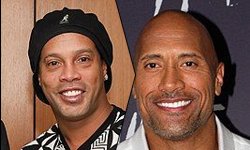BioGraph
Connecting Srinivasa Ramanujan and Alan Turing
Srinivasa Ramanujan
Hardy gave himself a score of 25, J. E. Littlewood 30, David Hilbert 80 and Ramanujan 100.{{'"}} During a May 2011 lecture at IIT Madras, Berndt said that over the last 40 years, as nearly all of Ramanujan's conjectures had been proven, there had been greater appreciation of Ramanujan's work and brilliance, and that Ramanujan's work was now pervading many areas of modern mathematics and physics.
David Hilbert
German mathematician (1862-1943)
The basis for later theoretical computer science, in the work of Alonzo Church and Alan Turing, also grew directly out of this 'debate'.
Srinivasa Ramanujan
The first two professors, H. F. Baker and E. W. Hobson, returned Ramanujan's papers without comment.{{rp|170–171}} On 16 January 1913, Ramanujan wrote to G. H. Hardy.
H. F. Baker
Gordon Welchman recalled that in the 1930s before the war Dennis Babbage and he were members of a group of geometers known as Professor Baker's "Tea Party", who met once a week to discuss the areas of research in which we were all interested.
Gordon Welchman
Welchman was one of four early recruits to BP, the others being Alan Turing, Hugh Alexander, and Stuart Milner-Barry.
Srinivasa Ramanujan
Hardy found these results "much more intriguing" than Gauss's work on integrals.{{rp|167}} After seeing Ramanujan's theorems on continued fractions on the last page of the manuscripts, Hardy said the theorems "defeated me completely; I had never seen anything in the least like them before",{{rp|168}} and that they "must be true, because, if they were not true, no one would have the imagination to invent them".{{rp|168}} Hardy asked a colleague, J. E. Littlewood, to take a look at the papers.
Hardy gave himself a score of 25, J. E. Littlewood 30, David Hilbert 80 and Ramanujan 100.{{'"}} During a May 2011 lecture at IIT Madras, Berndt said that over the last 40 years, as nearly all of Ramanujan's conjectures had been proven, there had been greater appreciation of Ramanujan's work and brilliance, and that Ramanujan's work was now pervading many areas of modern mathematics and physics.
John Edensor Littlewood
doctoral_students = {{hlist | A. O. L. Atkin | Sarvadaman Chowla | Harold Davenport | Srinivasa Ramanujan | Stanley Skewes | Donald C. Spencer | Albert Ingham}}
Srinivasa Ramanujan
K. Srinivasa Rao has said, "As for his place in the world of Mathematics, we quote Bruce C. Berndt: 'Paul Erdős has passed on to us Hardy's personal ratings of mathematicians.
Paul Erdős
Hungarian mathematician (1913–1996)
Erdős's thesis advisor was Lipót Fejér, who was also the thesis advisor for John von Neumann, George Pólya, and Paul (Pál) Turán.
John von Neumann
Hungarian-American mathematician and physicist (1903–1957)
He also worked on the philosophy of artificial intelligence with Alan Turing when the latter visited Princeton in the 1930s.







